I was in Melbourne this week to make my monthly recollection (a sort of mini-retreat), so I was able to stick around and attend the 2013 Harman Lecture.
The Harman Lecture is an annual lecture delivered primarily to the faculty and students of the John Paul II Institute for Marriage and the Family. This year, Cardinal Marc Ouellet spoke on ‘The Significance of the Institute for the New Evangelisation.’
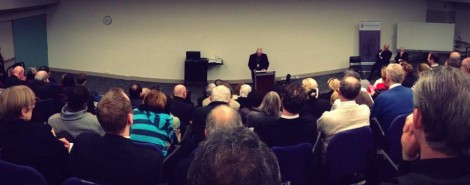
Photo credit: Bradley Rowswell
Being an academic lecture delivered by an academic for academics, you can imagine that the subject matter was largely academic. Text of the lecture will soon be available on the JPII Institute website, so I won’t attempt to reproduce its themes here. I’ll note only that the Cardinal spoke of an “anthropological crisis” which afflicts contemporary culture.
A few weeks ago, I had coffee with a seminary classmate, now a priest. He suggested that gay marriage is to the Church of our time what the contraceptive pill was to the Church in the 1960s. It had never occurred to me before, but upon reflection, I think he’s spot on. In both cases, unbroken Christian tradition is in direct conflict with the spirit of the age. And in both cases, anthropology — a philosophical account of the human person — is at the heart of things. So I listened closely to Cardinal Ouellet’s analysis of an anthropological crisis, and his proposed remedies.
The Cardinal spoke for less than an hour, and then fielded questions. In the course of his address, and more so in his unscripted answers, he expounded on the family as an examplary Imago Dei. In doing so, he employed memorable turns of phrase.
“The sacrament of marriage is a couple’s Pentecost,” for example. Marriage not only consecrate’s a couple’s union, but also divinises it. Herein lies the sacramentality of marriage.
“The fruitfulness of marriage is first and foremost spiritual.” A husband’s gift of self, and a wife’s gift of self, “creates a new identity”; a presence of God. Children are a manifestation of this, but some couples’ inability to have children in no way diminishes their sacramental fruitfulness.
“Evangelisation is accomplished by attraction, not by compulsion.” The best demonstration of the image of God is a loving family.
The Cardinal’s remarks reminded me of a blog I recently stumbled across: Shawn van der Linden’s “Faith, Family, Fatherhood.” Here’s a living example of precisely the sort of thing Cardinal Ouellet was talking about:
Like many parents today I am becoming very concerned about the increasing “sexualisation” of our society and its impact on young children . . .
. . While it is overwhelming, I think we sometimes underestimate the power of our own marriages when it comes to taking the fight up to this culture.
Recently my wife and I celebrated our 13th wedding anniversary. Our takeaway, candle lit dinner was accompanied by interruptions from our children who insisted on regularly getting out of bed to check how our “romantic” dinner was going!
My wife and I have often reflected on the impact of our expressions of intimacy on the happiness of our young children. Usually if they find us having a cuddle in the kitchen, or sitting close on the couch, they will run over to join in. It sometimes ends up being one big family hug! They are like magnets to the love and intimacy that exists between my wife and I. Indeed they thirst for it and in so many ways it is the foundation of their security in life.
Tertullian wrote that a demonstration of love distinguished Christians in the earliest days of the Church. He quoted a pagan official who marvelled at what he encountered: “See how they love each other!” (Apology, 39.)
Loving families must be at the heart of the Church’s new evangelisation.

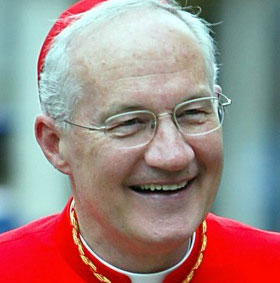
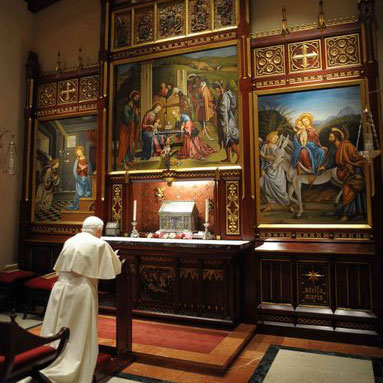
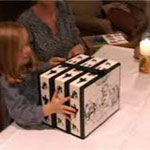
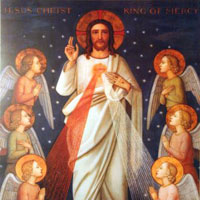
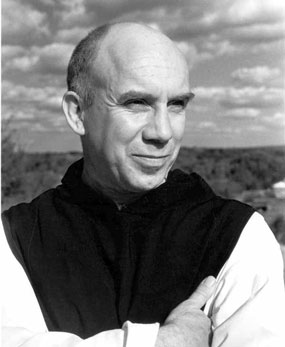
One most effective and convincing way of evangelising the happy family is this: a beautiful, smart, Catholic mother of seven gets up before a small group of young couples (usually cohabiting, unfortunately) in a marriage preparation course.
She tells them of her own experience: she and her husband both waited until marriage before intimacy. They were open to life, conveying to the Lord He MUST provide for their growing family because they were doing His will. He did. He is.
By her very being she destroys their cultural prejudice about purity and about procreation. She is gorgeous and qualified, without ever having sacrificed her children for her vocation.
She is not alone – there are many amazing Catholic mothers like her. They show young women what is beautiful, true and real. Chaste, open to new life and with dynamic relationships with their husbands and children.
I reckon this is the most powerful evangelisation Catholic
couples can practice.